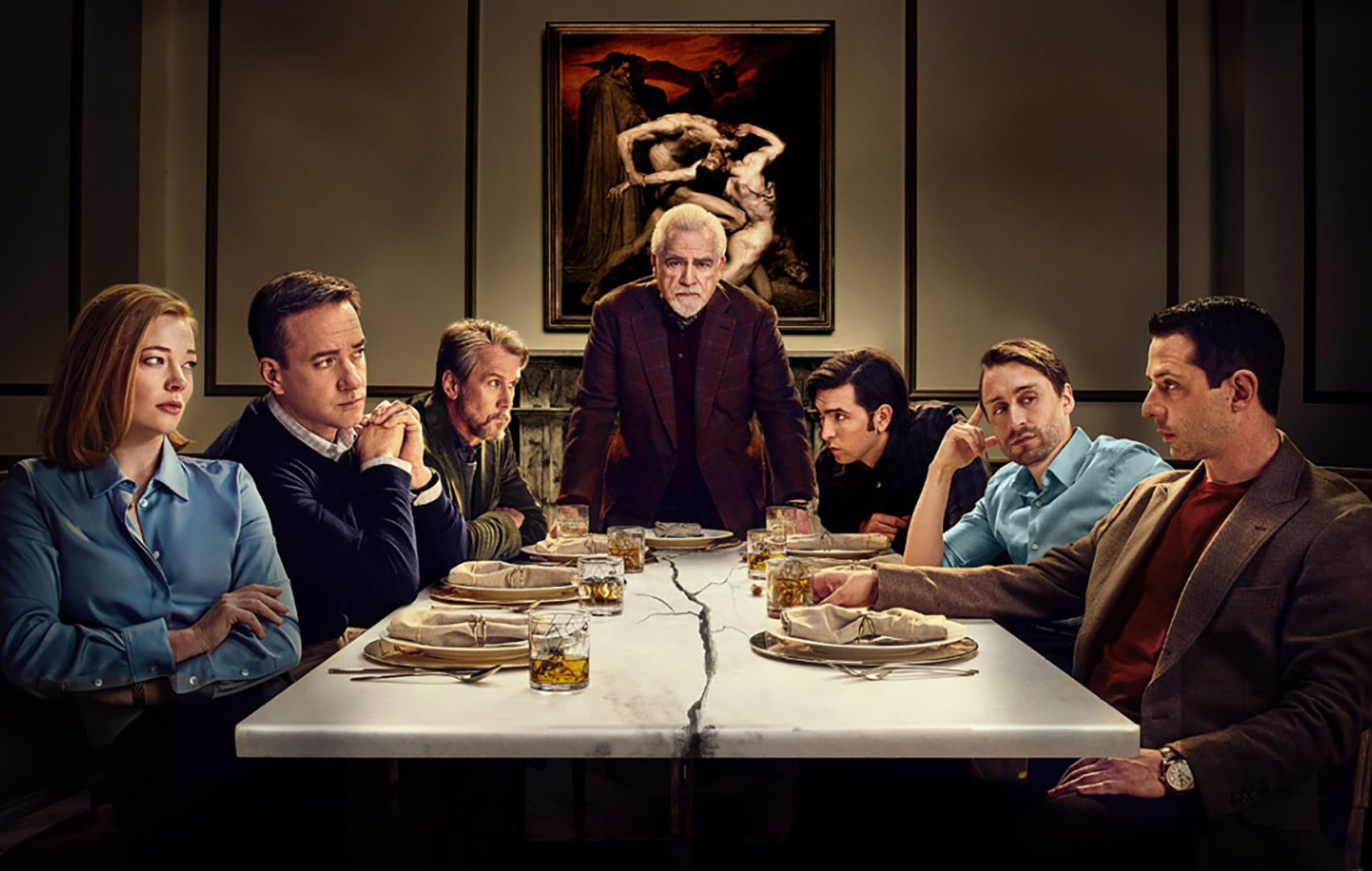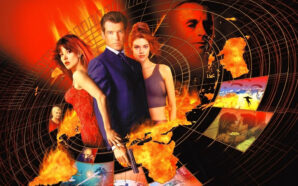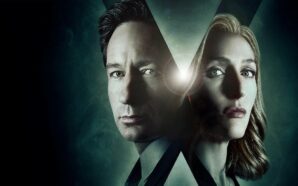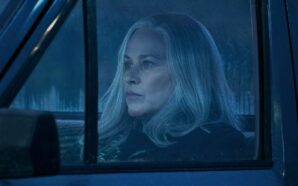“Give it a few episodes before it gets good.” While some shows engage the viewer right from the pilot, others need an asterisk when recommending them to a friend. HBO’s Succession might be the prime modern example. The series is on the brink of airing its fourth season, surprisingly announced as its final outing, and it’s hard to think back on a time when Succession wasn’t beloved as a satirical comedy-drama masterpiece. Yet the first season wasn’t an immediate hit and I didn’t hear the buzz until the ten-episode debut was over, ready for bingeing. And yes, despite my eventual adoration for the show, those first few episodes weren’t immediately engaging on my first watch. They were even a little bit of a struggle to get through.
But now that we are invested in the story of the Roys, so in love with the series, is the beginning still a rough watch or were we just ill-prepared and not familiar with the characters, not used to the tone? Are the opening episodes actually weaker than the rest? After a recent rewatch I can conclude that yes, actually, they are.
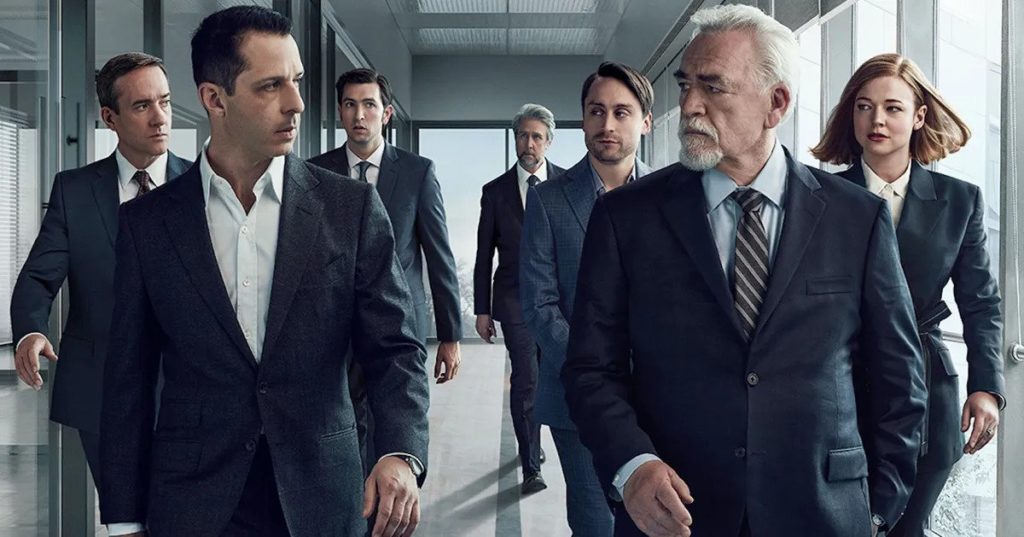
Succession is not just the best drama on television but the best comedy too. It’s hilarious, yet the first three episodes struggle to hit one or two chuckles each. In being given an HBO series to work on, it feels as if creator Jesse Armstrong, known for Peep Show, and his fellow writing team of mainly British sitcom writers are trying to prove their worth as dramatists. They can branch out and do serious drama but it’s an overcorrection and it takes until the fourth episode, the instalment that really captured my attention, until there’s much more of a healthy balance between the serious and the comical. If anything, the jokes aid the drama, making the characters feel more human and relatable, which really is struggle when they are all purposefully so detestable.
The reason for why the show doesn’t hit its stride until its fourth episode is because the first three form a sort of elongated pilot. Instead of one episode setting everything up for the season, and series, to come, the complex inner workings of the Roy family and Waystar Royco require three. The core cast are introduced in the first episode, the secondary cast are then introduced in the second, and then the location of the Waystar offices and the actual workplace drama dominates the third. It’s not until the fourth episode when the ‘homework’ stage of the series is over and the show can flow better and have some fun with established characters and dynamics. This begins in the third episode, which is the best and funniest of the initial three (I love the dog poop bag scene), but structurally it feels like an unfocused mess. With the fourth episode the show truly arrives, with the tone and quality of writing that will persist for the rest of the series.
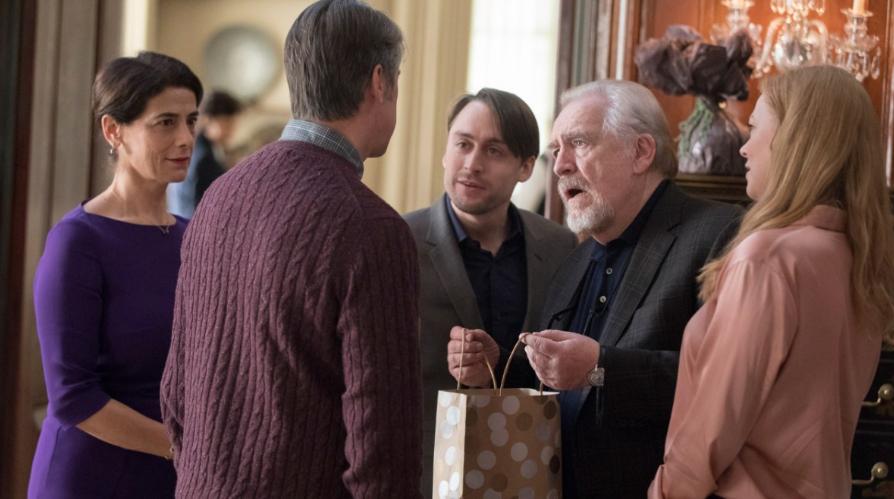
The first three episodes of Succession are a perfect example of what the three types of episodes of Succession are. The first is ‘the party.’ Every few episodes the show will come up with some excuse to get all its characters in the same location, usually for a birthday party or a ball or a gala or a wedding or some other rich person event, and the tensions that have been building boil over. In the pilot, Logan’s birthday is close to being ruined by Adam McKay’s ludicrous direction. He only directs the first episode, apparently setting a visual palette, although his documentary style is thankfully lessened about 95% going forward. The number of zooms and quick pans is insane, and Mark Mylod wisely steps in as lead director for the rest of the show.
The second episode is ‘the panic.’ The episode set around one location and/or event and all the characters rush around having to react to it, often leading to the funniest instalments of the show, such as ‘Retired Janitors of Idaho’ from season 3 – my favourite episode of the series. Yet episode two, dominated by the fallout of Logan’s stroke, isn’t the fast-paced reactionary episode it could have been; it’s slow and dull with as much set-up as the first.
The third episode is ‘the calm.’ Each character is off in their own storyline, much takes place in offices and apartments, as the pieces are put in place, the real nitty-gritty plotting, for the next explosion of drama. These are never the most exciting or memorable episodes but at least the humour begins to shine through more despite the lack of focus. Revisiting the third episode also reminded me of how many Star Wars references Tom makes in the early days before that part of his character disappears completely, which is shame. There’re some great Star Wars jokes in The Thick of It, which Armstrong previously wrote for.
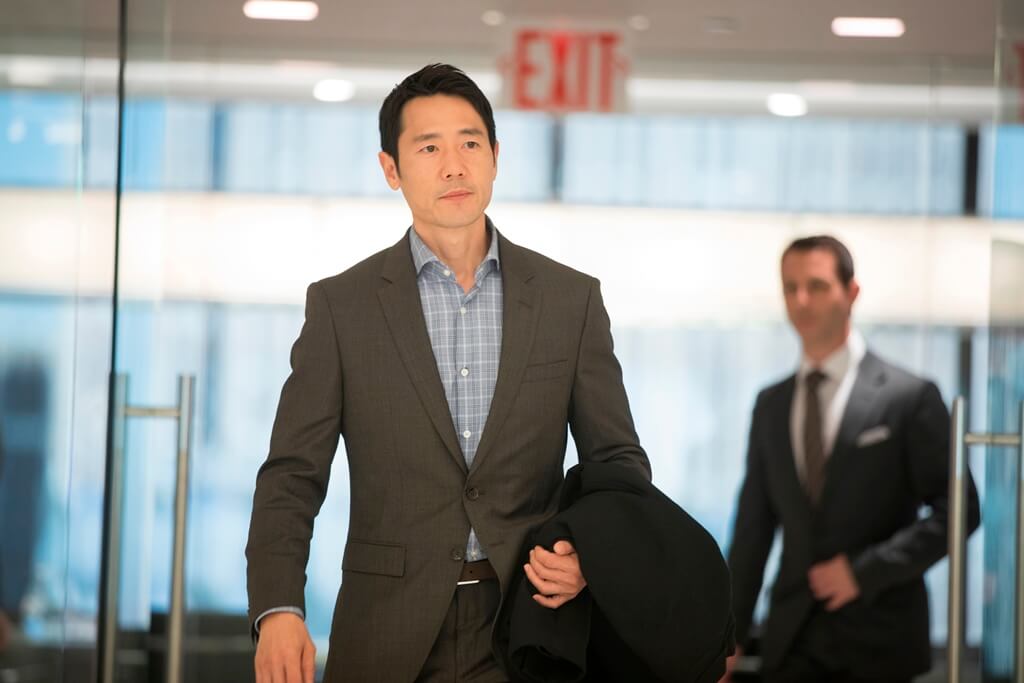
Rewatching the early episodes also shows how much the supporting cast has changed over the years, finally settling on similar versions of characters seen in the first season who succeed where these early iterations fail. Lawrence Yee at Vaulter is treated as a major player, someone who is going to cause trouble inside Waystar, but his role is reduced in conjunction with Stewie’s expanding. Eva, seemingly the head of ATN, is uttered in the same breath as Karl as someone who could run Waystar but then she’s replaced by Syd in season 2 – I had forgot she even existed, to be honest. Greg’s mom, remember her? I wonder if she’ll ever return. Roman had a wife and child in the pilot who were quickly retconned out of the series. And I do miss when Marcia was a major character. She’s had such a reduced role but the early episodes play her off as this ultra-mysterious figure to be scared of, with a background check showing she’s wiped clean her shady history.
But when it comes to characters, the biggest point to make is Logan’s absence from the first few episodes. He makes a big impact in the pilot but then for the next two hours he’s in bed, out of the show, his survival questionable. This is necessary for the story but none of the other characters are as instantly magnetic as Brian Cox so his absence is felt perhaps a little too much, and with Logan’s kids worried for their father they aren’t as hilariously acerbic as usual. The beginning of the show can’t survive without Logan but I’m predicting Logan will soon be absent again. To fully honour the premise of the show, I think the Roy family patriarch will have to die midway through the final season, allowing the children to deal with the fallout of his death and the succession to be ultimately fought over. Yet now, with seasons developing both the characters and the drama, comedy, and tone of the show, Succession can survive the loss, if not thrive because of it. The series has improved dramatically since its flawed beginning, and it’s a shame the end is now so very near.
What are your thoughts on the first few episodes of Succession? Let me know in the comments and be sure to geek out with me about TV, movies and video-games on Twitter @kylebrrtt.




